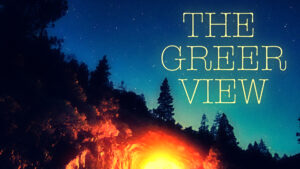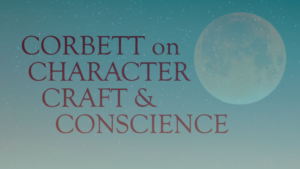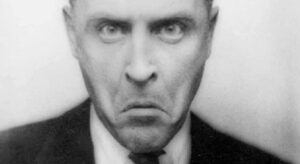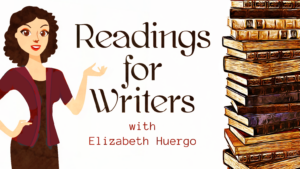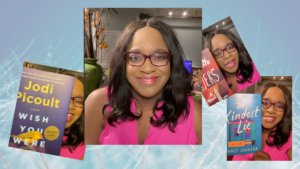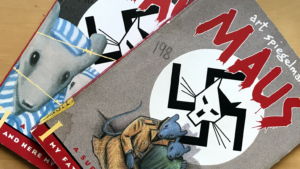provocations
Please welcome bestselling author Jamie Beck to Writer Unboxed today! Recently, Jamie asked the opinion of other writers over social media about trigger warnings on novels, and such a robust conversation evolved that it seemed obvious: This would make a great topic to explore on WU. Happily, Jamie agreed to write the piece. From her bio:
Jamie Beck is a Wall Street Journal and USA Today bestselling and award-winning author of 18 novels, many of which have been translated into multiple languages and have collectively sold more than three million copies worldwide. Critics at Kirkus, Publishers Weekly, and Booklist have respectively called her work “smart,” “uplifting,” and “entertaining.” In addition to writing novels, she enjoys dancing around the kitchen while cooking, and hitting the slopes in Vermont and Utah. Above all, she is a grateful wife and mother to a very patient, supportive family.
Learn more about Jamie and the novel that sparked the conversation, The Beauty of Rain, on Jamie’s website: www.jamiebeck.com.
My publisher engaged a sensitivity reader to evaluate the portrayal of a neurodiverse character in my summer 2023 release (The Beauty of Rain). I eagerly anticipated the reader’s feedback, whose notes on that aspect of the manuscript were ultimately helpful and unsurprising. Conversely, her recommendation that I add trigger warnings about suicidal ideation and prescription drug abuse did momentarily throw me.
Most everyone knows that a trigger warning is essentially a statement cautioning a consumer/reader that the content may be disturbing or induce a traumatic response. Although these labels are not as commonplace in publishing as they are in film, television, and music, in recent years they’ve begun to appear on a book’s digital detail page, its back jacket, or in an author’s note. The big argument in favor of such labels is that they give a reader the choice to avoid a book that contains material said reader might find harmful or that could unwittingly force them to revisit past trauma.
While I consider myself to be a compassionate person who would never purposely cause someone harm, my initial reaction was to reject the suggestion. Trust me, I know that sounds awful, but I worried that the warnings somewhat mischaracterized the tone and themes in my work. After all, if A Man Called Ove had included a suicidal ideation warning, many people might have missed out on an extremely life-affirming story. I discussed my concern with my agent and editor, both of whom also expressed doubts about the necessity of the warnings.
Coincidentally, around that same time I was doom-scrolling on Twitter and came across a New Yorker article from 2021 entitled “What if trigger warnings don’t work?” That piece discusses studies conducted with respect to the effectiveness of content warnings in academia (which are on the rise). The data suggests that such warnings not only don’t work, but they may inflict more harm by causing additional stress and reinforcing the idea that a trauma is central to a survivor’s identity (which is the opposite of PTSD therapy goals). On Twitter and in an Authors Guild discussion thread on this topic, more than one licensed therapist concurred with the article’s conclusions and believed trigger warnings had no meaningful effect.
You might […]
Read MoreTherese here to introduce you to today’s guest, Terah Shelton Harris. I met Terah on Twitter, where I learned that she is a librarian and freelance writer–with works appearing in Catapult, Women’s Health, Every Day with Rachel Ray, and more–and that she had tackled a very difficult topic for her debut novel, One Summer in Savannah. I’m so pleased that she accepted the invitation to write for WU to share her experience–why she traveled the road she did, how it stretched her as a writer, and how her topic asked her to consider her readers.
“Terah Shelton Harris’s daring debut is nothing short of astonishing. To write a novel that has the capacity to uplift you while it tears your heart to shreds is a balancing act few can achieve, but Harris does with ease and endless empathy. We are brought face-to-face with the most difficult questions––of family, forgiveness, and how to make a way forward––but if we can muster the courage of characters like Sara and Jacob, we will find answers that sustain us for years to come. The best writers are brave writers, and Harris has proven herself among those ranks.” —Mateo Askaripour, New York Times bestselling author of Black Buck
You can learn more about Terah and her debut novel, which releases on July 11th, on her website. You can also follow her on Twitter and Instagram. Welcome, Terah!
As writers, we invite readers on a journey. We take their hands and escort them to a crime scene to solve a mystery. We take them on a character’s path to self-discovery or inside the ups and downs of a relationship. We invite them to imagine worlds that do not exist. But sometimes the journey isn’t to far-flung destinations. Sometimes that journey isn’t very far at all. Sometimes the journey lies within the reader.
As writers, we need to consider what we ask of readers as we write. For example:
How do YOU define forgiveness? What is it? And what does it mean to you? My debut novel challenges readers to explore the definition of forgiveness and what it truly means to forgive.
Because my own understanding of forgiveness was challenged.
Inspiration for my novel stems from the 2015 Emanuel African Methodist Episcopal Church shooting. After the parishioners fed him and prayed for him, Dylann Roof shot and killed nine of them. Days after that terrible tragedy, before they had even buried their loved ones, some of the survivors and relatives of those killed walked into a South Carolina courtroom and forgave Roof. Everything I thought I knew and understood about forgiveness shattered. At that moment, I realized I knew nothing about forgiveness. I assumed that there were crimes and acts that were unforgivable. I learned the opposite. The loved ones who forgave Roof taught me that forgiveness is not one-size fits all and unknowingly challenged me to look inward to create and test my own definition of forgiveness.
Writing isn’t supposed to be comfortable or easy, and neither is reading. Rather than running from what makes us uncomfortable, we can take risks, challenge ourselves, and take our readers along with us.
While my novel doesn’t involve a situation like […]
Read MorePlease welcome longtime Writer Unboxed community member Lancelot Schaubert back as our guest today! Lance is the author of the novel Bell Hammers.
“Schaubert recounts a mischievous man’s eight decades in Illinois’s Little Egypt region in his picaresque debut BELL HAMMERS. Remmy’s life of constant schemes and pranks and a lifelong feud with classmate Jim Johnstone and the local oil drilling company proves consequential. This is a hoot.”
– Publisher’s Weekly
More about Lance from his bio:
Two excerpts of Lancelot Schaubert’s (lanceschaubert.org) debut novel BELL HAMMERS sold to The New Haven Review (Yale’s Institute Library ) and The Misty Review, while a third excerpt was selected as a finalist for the last Glimmer Train Fiction Open in history. He has also sold poetry, fiction, and nonfiction to TOR (MacMillan), The Anglican Theological Review, McSweeney’s, Poker Pro’s World Series Edition, The Poet’s Market, Writer’s Digest, and many similar markets.
Spark + Echo chose him for their 2019 artist in residency, commissioning him to write four short stories.
He has published work in anthologies like Author in Progress, Harry Potter for Nerds, and Of Gods and Globes — the last of which he edited and featured stories by Juliet Marillier (whose story was nominated for an Aurealis award), Anne Greenwood Brown, Dr. Anthony Cirilla, LJ Cohen, FC Shultz, and Emily Munro. His work Cold Brewed reinvented the photonovel for the digital age and caught the attention of the Missouri Tourism Board who commissioned him to write and direct a second photonovel, The Joplin Undercurrent, in partnership with award-winning photographer, Mark Neuenschwander.
Lance shares free resources for writers on his website, HERE, where you can also learn more about him.
Stanza I: The Dragon.
In every medieval occidental story about dragons — actually, even in some of the medieval luck dragon stories — a dragon unattended grows. When it’s an occidental dragon, your own and the dragon’s greed and anxiety and unattended consequences worsen. The longer you refuse to face it, to do something — anything — to try to deal with the problem, the more the problem grows. That’s the nature of invasive species, of viruses (can I get a witness?), of mold, and of extended family drama or workplace gossip. It’s the nature of ignoring preventative maintenance for your mental health, of waiting until you’re 55 to start working out (you lose 1% of your muscle mass from that point on until you die), and of waiting for an oil change in your car (a relative of mine blew hers up this way).
It’s also the case internally. The problem left unattended grows your anxiety, your bitterness, your shame. Your refusal to grieve, to encounter the world with wonder, to play, to dance in the minefields — these all grow the problem in your mind. And so (to borrow a metaphor from a shared text, setting aside the reasons we share it) while Voldemort grows in the world, he also grows in your head. And you have to deal with the Voldemort within in order to kill the Voldemort without.
The longer you ignore the dragon, the bigger he gets.
How do you think Smaug got so powerful?
No homely lakelander wanted to deal with a dragon. No dwarf would harm his hoard.
Stanza II: The mice […]
Read MoreI’m not talking about the stories that you write. I’m talking about the ones you tell yourself: while you’re writing, when you can’t write, after you write, when what you wrote doesn’t get an agent or publisher, or isn’t well reviewed, or doesn’t sell well.
Our attempt to find reason and logic in what is so painful to us—rejection, disappointment, setbacks with our personal creative work—often results in finding reasons that don’t actually exist. “Reasons” that decimate our confidence and self-image and equanimity, the very elements we need to most freely create our best work.
It’s not these events themselves that can derail creatives, but the storytelling around them that we choose to subscribe to: Failure. Lack of talent. Hopelessness.
I’ve written a lot about this kind of destructive internal messaging and how to deal with it. But in this post I want to examine the premise of that story itself.
The Fallacy of the Story We Tell Ourselves
Usually it goes like this: “If I work hard and learn my craft and write the best story I am capable of writing and keep doing that, then eventually if I am good enough I will get published, my books will be hugely successful, and I will be a working writer forever and ever, amen.”
Unfortunately that’s just not how this career works. It’s not how most creative careers work. It’s not actually how any career works.
Interestingly it’s story itself that teaches us to think of it this way: The hero valiantly fights battles and ultimately he succeeds because of his skill or talent or goodness or strength. Humans are almost hardwired to believe this, and no one more so than writers, who live it every single day they practice their craft and try to incorporate some version of this idea into the narratives they’re creating.
It’s satisfying and tidy, but it’s not what happens in our writing—and it’s not what happens in life.
I regularly interview successful authors for a monthly “How Writers Revise” feature I write on my blog, and there’s not a single author I’ve spoken with who hasn’t talked about this business’s ups and downs, obstacles and setbacks, crushing disappointments as well as heady successes. There’s not one of them who hasn’t ridden a roller coaster between them all.
This is a business of ups and downs. Of seemingly random outcomes from decisions made based on the most subjective of criteria. Even factoring in that it is a business (and many times whether or not you get an agent, or whether or not you get published, has less to do with your talent or your story than it does the current market and the subjective preferences of a handful of individuals), after that it’s anybody’s guess what may capture a reading audience and what may not. What may sell well and what will not. What may be critically well received and what may not.
An author may struggle for novel after novel to even make a dent—a process ever more challenging now in a fast-moving industry that quickly moves on to the next shiny new debut author—and then suddenly break out. Ask Read More
In talking with other writers, especially those early in their journey, I’ve often said that talent isn’t the most important thing. Talent, for the most part, is not actually what gets you published. Talent is great, don’t get me wrong, and your journey toward holding your published book in your hands will be easier if you have some. But plenty of talented writers write a great book and then, poof, it goes nowhere. They don’t succeed, and they quit.
I’m sure you see where this is going. The quitting is the problem. Far more important than talent is persistence.
So persistence is the most important thing. Nobody can stop you from being published but you. You keep trying, and you keep going, and you work hard, and maybe it takes three months or maybe it takes twenty-three years, but if you can stay with it despite rejections, setbacks, and maybe even some outright failures, you can make it happen.
But would it surprise you that talent isn’t even the second most important thing?
I was thinking about this as I dove back into the draft of the third novel in my epic fantasy series The Five Queendoms. Writing fantasy wasn’t in my original plan. Actually, writing four historical novels under the name Greer Macallister wasn’t in my original plan either — those of you who know me know there was actually a name before that and a novel before that, one that had little in common with my best-known and most successful work. It was published and I was thrilled, but sales were poor, and it became clear I wasn’t going to sell a book under that name again.
So the plan changed. Greer Macallister happened, and I’ve had nothing but success under that name, having a fabulous time writing historical fiction centered on extraordinary women. But then I got this “feminist Game of Thrones” idea I couldn’t shake, and the plan changed again: not leaving behind my historical fiction career, but branching out from it, adding on. Greer Macallister writes historical fiction and G.R. Macallister writes epic fantasy. It was an idea and now it’s a reality.
Persistence is the most important thing. But right behind it? Is flexibility.
When you’re pregnant, they highly recommend you come up with a birth plan, covering everything from when and whether you want to be offered an epidural to what music you want playing in the delivery room. But anyone who’s been through it knows that when push comes to shove (as it were), that birth plan goes out the window. There are just too many variables. You can’t control all the things you would need to control in order to follow that plan to the letter.
Your writing career is like that. You can and should plan for it: what do you want to write? How do you want to publish? But persistence doesn’t mean sticking to that plan come hell or high water. You need the persistence to see things through, but you also need the flexibility to figure out that if things aren’t working the way you want, you’ve got to find another path forward.
Q: Has your writing career required flexibility? Do you agree it’s almost, but not quite, as important as persistence?
Read MoreImage – Getty iStockphoto: Phonlamai Photo
Scaring Up Some Audiobooks
Recently, a distributor of digital books – both ebooks and audiobooks – announced that it was adding a new offering for publishers: “AI voicing” for audiobooks. The company could barely clear the word audiobooks before rushing to assure everyone that “AI narration” would never match the primacy of audio work using human readers and production. The caveat, going on and on, came across almost as an apology before any offense had been committed.
True, a certain resistance to the idea of machine-generated audiobooks is hardly eased by such headlines as Synthetic Voices Want To Take Over Audiobooks (Wired, January 27). No, they don’t. Synthetic voices don’t want to take over audiobooks. They don’t want anything. They’re synthetic. But book publishing is an industry that’s never accepted digital developments easily. Even after e-commerce and digital products played a key role in the US market’s comparative success during the still ongoing pandemic, those “synthetic voices” seem to murmur something sinister.
The many vendors now offering machine-generated audio narration know that this is the pushback to expect. It’s a mindfield of emotional reaction. They’re nervous about it.
Some defensiveness isn’t without reason. The business of gifted human narrators – who are actually readers, voice actors, interpreters, not narrators, the term has never been quite right – are supported by many additional workers in important roles. Those workers include sound technicians, audio editors, studio and tracking-booth providers, producers, in some cases directors, and more folks. Jobs are involved, and they comprise a lot of talent and many skill sets. Programs like the Audio Publishers Association support these workers, and the APA’s Audie Awards rightly honor their work in 25 categories.
Nevertheless, there are compelling reasons for publishers to listen to machine-generated audiobook readings. The kind of work they can handle is unlikely ever to be produced in human readings because of the cost factor.
As many publishing professionals readily agree, machine-produced voicings may be best for nonfiction, which is generally thought not to need the emotional and aesthetic nuance of fiction. But of course, in a great many cases, nonfiction is read by the human author, who may be untrained and inexperienced at the microphone. While there’s always someone asserting that those “synthetic voices” feature many mistakes in pronunciation, so does the work of many human authors.
Just days ago, I heard a very fine, prominent nonfiction author in his reading of his own book pronounce scathing with a short a, making that first syllable rhyme with cat. Most of us have had the experience of discovering, red-faced, that we’ve been pronouncing something wrongly for years. The audio edition of one of last year’s most important American political books was at times almost comical in its mispronunciations by its much-praised author. In both machine-generated and human-produced readings, proof-listening is critical to catch these things.
Still, the imperative for publishers regarding audio actually goes beyond nonfiction.
Read MoreAt some point in your career you may get asked to participate in a story anthology with other authors. If the collection is clearly linked to the themes, style, and subject matter of your own work, a “yes” response is often simple. But on other occasions the premise of the anthology may seem so far removed to your customary niche, and you may wonder if you can contribute meaningfully, or it’s worth your while to try.
I was recently asked to participate in a nonfiction anthology about voter suppression and intimidation. (It’s the third in a series titled Low Down Dirty Vote; the specific focus of this collection, which comes out this Sunday, is The Color of My Vote.) All of the solicited contributors were from the crime-mystery genre, for reasons the anthology’s editor, Mysti Berry, explains below. But the issue for the sake of this post concerns how each of the contributors adapted the themes and techniques of that chosen genre to something seemingly far removed from the world of murder, banks heists, and kidnappings.
Mysti Berry, the editor of all three volumes of Low Down Dirty Vote, explained her reasoning this way:
“Raising money for a good cause is a time-honored tradition, from bake sales for schools to begging text messages from our elected representatives. But I’ll admit, donating to the cause of fighting voter suppression via crime stories is not the most obvious of choices.
Indeed, when I approached the writers I knew best to ask for a story for Volume I of Low Down Dirty Vote, a common response was, “Oh, I love that cause—but I’ve got nothing. It’s kind of weird, you know?”
Indeed, in the early days of the 21st century crime writers were strongly encouraged to leave politics in the subtext. That changed dramatically, however, in the past few years.
Crime writers spend their working lives studying the difference between who we say (and believe) we are, and who we really are; what we really do when we think no one is looking. Crime writers know a con when we see one. And we know what happens when you let corruption fester.
But how can we talk about this when we’re supposed to “keep politics out of it?” I came to believe that there is a profound difference between policy disputes (what we used to call politics) and basic civil rights and human rights. Policy disputes are best left for a time and place when all parties agree that they want to “talk politics.” But defense of every citizen’s basic civil rights and human rights for everyone is a task we should embrace and insist upon—loudly.
Luckily for the anthologies, quite a few crime writers agree.
When I asked certain writers for a story for Volume I, it was because I knew them as good and decent human beings, and I assumed that they either already knew more than me about voter suppression or, like me, events of the day were catching them up fast.
I’m very shy and especially phobic about asking people for favors, so I asked people who would either say yes or be very nice about saying no. I shouldn’t have been worried, though—crime […]
Read MoreNOT writing as a whole. Neither of us would be here if we wanted to give up writing. But what if you gave up an idea that is holding you back? Might it free you, your writing, your creativity?
I have to finish this manuscript before I can write the next story.
What if you didn’t? What if you moved on to another story? Just tested it out. You can still come back to the old manuscript. But what if the self-imposed idea that you have to finish something before you start the next thing is preventing you from working both on the old story and on the new story? Maybe you don’t like the old thing anymore, or the story isn’t quite working and you can’t figure out how to fix it, or it reminds you of a bad time in your life, or any other reason. If you gave yourself permission to put it aside would that be so wrong?
Would that make you a quitter? Or would that make you an adult who has looked at the options and decided to go another way? Laying aside a writing project that isn’t working / that you aren’t working on might be energizing. It might even help you make your way back to that project and finish it.
This is what I’m telling myself about the trilogy I’ve been working on for several years. I indie published the first book, fully drafted the second, and mostly drafted the third. And I’m just not working on them. But I won’t let myself move on, either, because I have to finish them. It was on a walk a few days ago that I asked that scary question: What if I gave up the idea that I had to complete the trilogy before I wrote anything else?
I’m close to giving myself permission to put them aside, at least for now, so I can start the next story idea. It might take until the end of this post, but I’m working on giving up this idea.
I have to find The Best System for Writing.
It can ease the anxiety of writing to put all your trust in an expert who has a system they say always works. But when that system doesn’t work for you, or it stops working for you, or some new expert comes with a Shiny New System that throws your system into question, or the novel you wrote using The Best System is rejected, that increases your anxiety. And you think it’s your fault–either for not following The Best System well enough or because it must not be The Best System and now you have to find the real Best System.
Writing is an anxiety-producing endeavor. No system and no writing advice will help you avoid it completely. And no system or writing advice can guarantee commercial success. Not even our own beloved Don Maass’. When I was in the Writer Unboxed Breakout Novel Dissection Group, every book we read violated at least one of his characteristics of a breakout novel.
Giving up the idea that there is a Best System can set you free to pick up and run with the writing advice that gives you energy and makes your imagination churn with ideas, and […]
Read MoreFiction implies a made-up world, but for some novelists, their books are rooted in real events. WU contributing author Nancy Johnson offers examples of contemporary novels that explore some of our shared experiences. Check out her video here.
Do you center your own fiction around real-life events? If so, what have you learned in the process? As a reader and writer, how do novels help you make sense of the real world around you?
Read MoreIf you’re trying to figure out how to do something you’ve never done, you seek advice, right? Some of that advice is bound to come from the internet.
And if you’ve ever sought advice on the internet, you know some of that advice is bound to be terrible.
For writers, that’s a big danger. But you have to start somewhere. When I put out a call for topics on Twitter recently, I got more requests than I would have guessed for advice on how to write scenes of labor and childbirth. Curious, I then went in search of existing advice on the topic: and wow, is there some pretty bad stuff out there.
Even if you’ve experienced giving birth to a child personally, as I have, it’s a pretty daunting subject to write about. One, it’s hard to describe. Two, it’s different for everyone. And three, it rarely appears in fiction – at least partly because of points one and two.
But if the story calls for it—if you’ve decided you need to incorporate that perspective—how do you even start?
For me, because I had my own experience, I could start with that. Early in the drafting of my new novel Scorpica, because the book is set in a matriarchal fantasy world called the Five Queendoms, I was obsessed with including five of everything. So I was going to kick off the book with five birth scenes.
I was already four birth scenes in when I reconsidered the wisdom of that plan, and only two of the scenes remain in the finished version of Scorpica. But writing that variety was a great exercise. I took special care to make each of them different, drawing on a different part of my experience for each one, and still, they were all engaging, detailed scenes of how a mother might give birth. Because, again, this is an event that can unfold in an unlimited number of ways.
For that reason, if you don’t have your own experience to start from, I’m going to give a potentially controversial bit of advice: start from someone else’s experience. Like birth itself, writing about birth is different for everyone. There’s no secret, no formula, no plan you can follow to make it all work out. You can start with one person’s experience, preferably one that’s close to the experience you’d like your character to have, and go from there.
Depending on what type of scene you’re trying to write, writing about things you haven’t personally experienced can be either 1) a terrible, fraught idea or 2) exactly what fiction is made of. In the case of birth, because the experience varies so much, I wouldn’t say that someone who hasn’t experienced it shouldn’t write about it. But I […]
Read MoreLong bored by re-reading Judy Blume and The Black Stallion series, I started plucking books from my parents’ bookshelves by age ten. Mom gave recommendations at first—Jane Eyre, Wuthering Heights—but said nothing to discourage me when I reached for The World According to Garp or Shogun a year later. She didn’t object when I swiped Danielle Steele titles either, though suggested I might wait a bit for D.H. Lawrence’s Lady Chatterley’s Lover. The book remained where it was, never forbidden, until curiosity got the better of me and I read that, too. Did she know? Probably. The next time we visited a bookstore, I handed her E.M. Forster’s even more controversial novel, Maurice. She bought it without hesitation, her only comment being an invitation to discuss the homosexual themes if I had questions.
My favorite teacher of all time—I’m looking at you, Nancy Schaitel–did not believe in sheltering her junior high students from potentially “upsetting” topics. Had The Hate U Give been published at that point, she would have taught it. She did teach 1984, Animal Farm, and Night. In fact, Night was just one element of a six-week long immersion unit on the Holocaust. We read Anne Frank’s Diary of a Young Girl, we learned to spell gestapo and ghetto, we watched Escape from Sobibor and Europa Europa. She even drove groups of students all over the state of Maine to interview concentration camp survivors.
Commonly challenged titles
She taught us that education was our best weapon against history repeating itself, and that one of the biggest danger signs to watch for is a backlash against intellectualism. A dumbing down of curriculum. A whitewashing of history. The banning of books. Worse, the burning of books.
This lesson has stuck with me. It’s why I never censored my children’s reading material. It’s also one of the reasons I’m relieved my sixteen-year-old is no longer a pawn in the Texas public school system.
After watching several horrifying TikToks about how easy it is for books to be challenged and banned from school libraries, I did a search of commonly targeted titles. The vast majority (no surprise) deal with “uncomfortable” issues like race, LGBTQ+ themes, and the Holocaust.
My idea to put up a Little Free Library filled with challenged/banned books came as an after-midnight gut reaction to a triggering topic. I posted about it on Facebook with the vague hope that someone might run with it.
By morning my comment thread had exploded. Two things were clear. One, the idea resonated, especially among writers. Two, I was that someone.
Prime location
I live in a corner house by a well-travelled street. Across that street is a large public middle school. An elementary school is less than a block away. My yard serves as a bus stop for four additional schools. The location could not be more perfect. I needed to do this.
When I said as much, the project organically transitioned into a collaborative effort. My craftsman dad built my library. A friend covered most of the construction cost. Another friend covered the fee to officially register my library. Someone suggested I compile a wish […]
Read MorePlease welcome author and community member Tom Pope back to WU today! Tom was a singer/songerwriter in Hollywood for twenty years before turning to novels. His second novel The Trouble with Wisdom is a cross-genre tale, being compared to a union of McCarthy’s The Road and Mattiessen’s The Snow Leopard, a dystopian story that gives rise to hope. It launches this Tuesday, 2/22/22. A prolific guy, Tom has four more novels in the pipe line.
We’re thrilled that he’s here today to bring us a provocation about hope, fear, and creation.
Learn more about Tom and his novels on his website, and by following him on Facebook and Twitter.
Joan Didion’s passing reminded me that after no one pronounced my first book brilliant, trendsetting, and sure to meet with fabled destiny, I realized I was slouching toward Neverland and quit writing for good.
It may surprise you that the next books I wrote in spite of my commitment to join the circus to avoid writing also sucked. My secret is: angst and self-contempt make for wonderful inspiration to get to the writing nook, so in my spare time I hone them to a sharp edge. In addition, ruinous doubt has proved to be a powerful enhancement for doing my best work. . .
. . . Said no author ever.
The Place of Dopamine
According to endocrinology and other scientific disciplines I can’t pronounce, success—such as landing a publishing deal—triggers dopamine response, which fuels happiness. But before you run too far with that, consider that eating food, sleeping well, and taking a bath produce the same result.
In the interest of personal and community care, as authors, let’s lay the cards on the table. 1) Writing involves nearly endless intricacies of the highest form of human cognition along with the mastery of many particular skills. Only the initial aspects of these capacities can be taught. Sharpening them is up to us. 2) The fabrication is time consuming. 3) Underlying each stage of writing lies a barely understood ability of mind—the creative process. Let’s take a moment to acknowledge the challenging landscape we work in.
The publishing industry, on the other hand, is not particularly interested in these things, including our dopamine response. So why would we—except under threat of death—surrender our symbiotic relationship with it in favor of taking a fused subordinate position if doing so weakens our passion to write, the quality of the work, and most importantly our ability to live happy and fulfilling lives . . . which can enhance our writing?
Earth, Sky, and Sales
Regarding creativity, consider each of us is bound by the parameters of the soil from which our creative process springs; things like our culture, country and history, our education and dwelling situation, and our health, backstory and gender. These conditions shape the stories which arise in the blue sky of our creativity. We cannot create what we cannot conceive.
What universal law, though, says that what we conceive will lie neatly on today’s idiosyncratic commercial path to fame and wealth? AND what axiom states that if our work doesn’t lie neatly there, it is bad? (That some authors solve this problem […]
Read More




